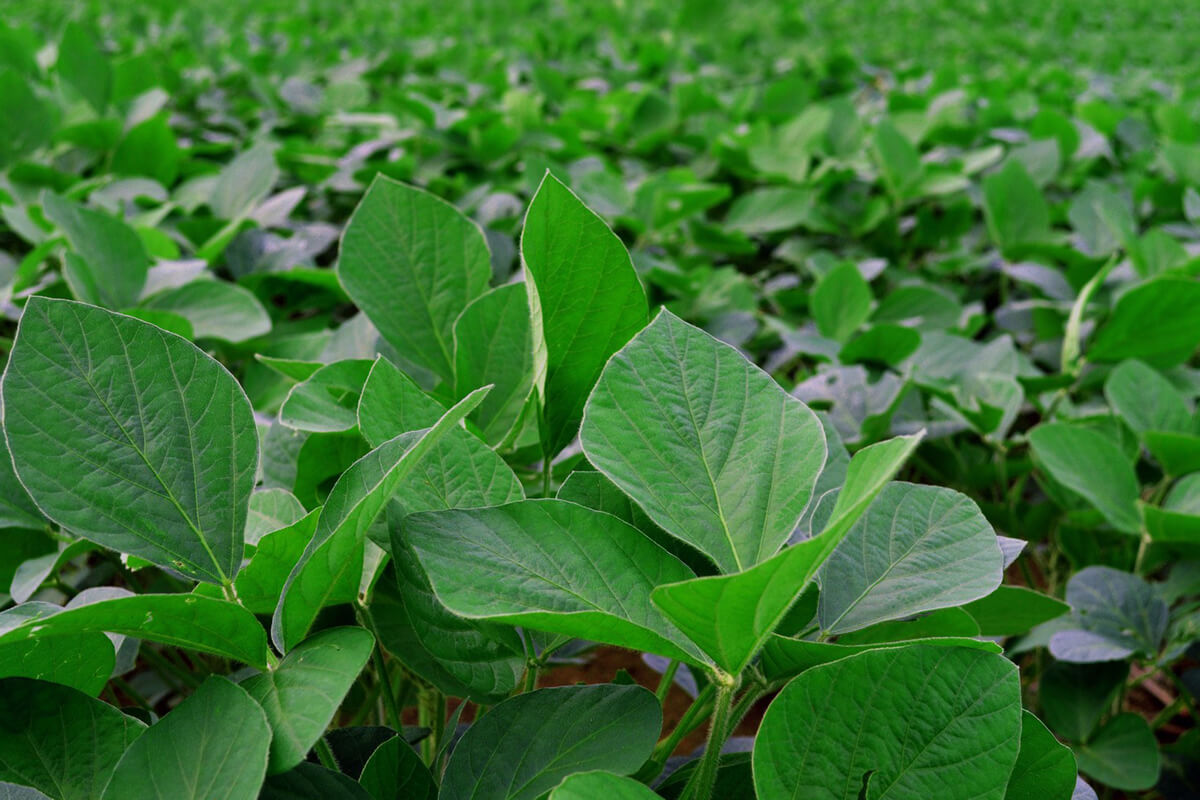Germany embarks on import substitution of non-GMO soybeans

About 8 million hectares, or nearly two-thirds of Germany’s arable land, is now potentially suitable for soybean cultivation.
Norbert Lehmann writes about the prospects for soybean farming in Germany in an article published in the leading German online agricultural magazine Agrarheute.com: “The trading giant ADM is looking for GMO-free soybeans for its oil extraction plant in Mainz (the capital of Rhineland-Palatinate, a region known for its wine production). Thus, it seems to be a win-win situation for German farmers looking to get into soy farming.
At the moment, soybeans are still a niche crop in Germany – last year, 45,000 hectares of soybeans were grown in the country, and that’s not even half the area devoted to viticulture. But this could change in the coming years, as the demand for soybeans is huge. Germany’s self-sufficiency level for this crop is only about 3 percent; in the EU it is about 8 percent. The rest is bought on the world market, many millions of tons of mostly genetically modified soybeans.
But trade giant ADM has seen a growing demand for non-GMO soy grown in Europe. That’s why the company has expanded its oil plant in Mainz – and is now actively looking for farmers who want to start growing soybeans in Germany.
ADM has significantly expanded the processing capacity at its plant: new bins and systems have been in operation since April. Although the trading giant is keeping quiet about the total capacity and the amount of investment, the aim is clear. As ADM dealer Daniel Afonso André explained to journalists, in the future only non-GMO soybeans will probably be processed into soybean meal and soybean oil once a month at the Mainz facility. Currently, most of the raw material is supplied by Ukrainian farmers, but ADM is actively seeking new soybean growers in Germany to utilize its capacity.
Demand for non-GMO soybeans is growing in the European Union, thanks in part to sustainable dairy programs. ADM now publishes daily producer prices for domestic soybeans. Delivery is available year-round both to the Mainz creamery and to ADM’s logistics partners throughout the country.
Martin Mirsch, executive chairman of the German Soybean Promotion Organization, sees many benefits for German farmers with the introduction of the crop. Grain legumes, which include soybeans, enrich crop rotations and heal the soil. Soybeans fix nitrogen from the air and, according to Mirsch, yields of up to 4.5 t/ha can be achieved without nitrogen fertilizers, which is important from an ecological point of view.
However, according to Achim Schneider of the German Seed Alliance (Saaten-Union), soybeans have high demands on soil, water supply and climate. In addition, seed inoculation with tuber-forming bacteria, the so-called rhizobia, is necessary. Harvesting occurs relatively late, in August or September, and requires appropriate technical equipment. Nevertheless, Schneider is convinced that new, adapted varieties will make soybean cultivation economical even in previously less suitable locations. Various funding opportunities from national programs and the EU’s Common Agricultural Policy (CAP) also contribute to this.
LfL Bavaria’s marginal profit calculator predicts a marginal profit (note this is the difference between sales revenue and variable costs) of €484/ha (note 47931 Russian rubles with kopecks) for the 2024 harvest for soybeans with a yield level of 3 t/ha and a producer price of €500/t (note 49515 Russian rubles with kopecks) without premiums including nitrogen fixation efficiency. Significantly higher profit margins can be achieved in organic farming.
As of May 23, 2024, ADM offers a producer price of 510 euros/ton (ed. 50506 Russian rubles and kopecks) from Mainz station.
Mirsch notes that about 8 million hectares, or nearly two-thirds of Germany’s arable land, is currently potentially suitable for soybean cultivation, especially in Baden-Württemberg and Bavaria, but also in Lower Saxony, North Rhine-Westphalia, Saxony and Saxony-Anhalt. There is still plenty of room in the crop rotation for soybeans.”
Read also
Wheat in Southern Brazil Impacted by Dry Weather and Frosts
Oilseed Industry. Leaders and Strategies in the Times of a Great Change
Black Sea & Danube Region: Oilseed and Vegoil Markets Within Ongoing Transfor...
Serbia. The drought will cause extremely high losses for farmers this year
2023/24 Safrinha Corn in Brazil 91% Harvested
Write to us
Our manager will contact you soon



